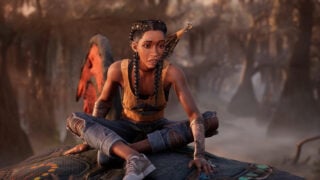PlayStation Home and 6 other delisted games that deserve to return
Scott Pilgrim is saved, but there are still plenty of brilliant games no longer available in any form

The re-release of Scott Pilgrim vs the World arrives on Xbox One, PS4, Switch and PC this week, more than six years after it was delisted from digital stores.
The delisting of games is a relatively common occurrence these days and can happen for a number of reasons, the most common being that a certain licence or sponsorship has run out and the publisher is no longer able to sell the game without renewing it.
This actually happens more than you may think, but the delisting of games usually goes by without much attention being paid to it because the games in question are often still available in physical form.
Hundreds of titles – including numerous Codemasters racing games from the DiRT, F1 and GRID series, Activision’s Spider-Man games and previous entries in Microsoft’s Forza and Forza Horizon series – are no longer available to buy digitally, but because they’re still on disc there’s at least still a way to buy and play them.

The problem comes when games are only released digitally, meaning there’s a clear cut-off point. Once a digital-only game is pulled from its shopfront, it’s almost always gone forever. On occasion a game will be deemed important enough to resurrect: Sega and Capcom’s respective remakes of Disney’s Castle of Illusion and DuckTales were delisted, but were then added again when their licences were renewed.
Most don’t get that second chance, though. Usually by the time they’re up for renewal their sales curve has flatlined and publishers decide it isn’t worth the extra expense to keep them alive, curelly pulling the plug. Scott Pilgrim fans will be rejoicing this week after the cult favourite beat ‘em up returns following a six-year slumber, but here are some more digital experiences that remain dead and could do with a rebirth.
1. The Legend of Zelda: Four Swords Anniversary Edition
At the time of writing the impending removal of Super Mario Bros. 35 from the Switch eShop is the cause of concern and bewilderment for Nintendo fans. Despite being a fantastic modern way of experiencing classic Super Mario Bros. gameplay, by the end of March 2021 it will be gone forever, instantly becoming a prime contender for future versions of this list.

This isn’t the first time Nintendo has yanked a much-loved anniversary release, though: In 2011 it released a special version of The Legend of Zelda: Four Swords to celebrate the series’ 25th anniversary. This brand new DSi take on the GBA favourite added a new single-player mode, allowing it to be played by just one person (the GBA version required 2-4 players) and therefore allowing many to experience the game for the first time.
Although it was a free download, the Four Swords Anniversary Edition was only made available for five months before it was removed from the DSi Shop. It only returned once more: when A Link Between Worlds launched to critical acclaim on the 3DS, Nintendo put the Four Swords Anniversary Edition back on the 3DS eShop for just a few days before pulling it again.
At this point it’s one of the only notable Zelda releases that can’t currently be obtained by any newcomers looking to play through every Zelda game on their own, and as such we’re hopeful that Nintendo will port it to the Switch at some point to give everyone a chance to play it. After all, it’s Zelda’s 35th anniversary this year, so maybe it’s time for another outing.
2. Sega’s HD arcade trio
During the Xbox 360 and PS3 era, Sega released HD versions of three of its most popular arcade games at the time. The first (and most loved) of these was OutRun Online Arcade, an enhanced version of OutRun 2006: Coast to Coast which launched in 2009 and included six-player racing and a native HD resolution for the first time in the series’ history. It was pulled just a couple of years later when the Ferrari licence expired.
Following OutRun was After Burner Climax, a 2010 HD port of the coin-op favourite of the same name. This was more of a straight port but was still the only way to play the arcade game at home, at least until Sega yanked it in 2014. No reason was given but it’s assumed it was the same one: the game included actual fighter jets by Grumman and Boeing. In 2019 it was given a mobile port but if you still want the big-screen experience you’re out of luck.
The last of these games is discussed least, probably because it was gone again after just a year. Sega Rally Online Arcade was a home port of the arcade title Sega Rally 3. Unlike 2007’s Sega Rally Revo, which was developed with consoles in mind and was more realistic, Online Arcade was all about ridiculous powerslides and swinging your car around with gusto, and it even included a modern version of the original Sega Rally desert track.
All three of these games have been gone for a long time now, and while the mobile re-release of After Burner Climax gives some small hope that they may make a return at some point, for now they remain a part of Sega’s history that nobody else can stumble upon and enjoy for the first time.
3. 1 vs 100
At the 2009 CES show, Microsoft’s head of Xbox 360 operations Robert Bach introduced a new service called Xbox Live Primetime. The idea was that some 360 games would be based on scheduled programming, just like a TV channel, which meant everyone would see the same live content at the same time and would be able to discuss it online, at work or in school the next day.
The first Xbox Live Primetime game was 1 vs 100, a live game show created in collaboration with Endemol (the TV company behind the likes of Big Brother and Deal Or No Deal). Throughout the week, players could take part in trivia contests, with their scores automatically appearing on national leaderboards after each question. The better you did in these regular contests, the more likely you’d play a part in the main live shows.
Taking place every Tuesday and Friday, these two-hour shows were hosted by an actual person. Each round chose a single player (‘the One’) and put them against 100 other players (‘the Mob’), in an attempt to see who would get a question wrong first. If the One survived, they would win up to 10,000 Microsoft Points (about £85 in store credit), whereas if they got knocked out the winnings would be split among whoever was still left in the Mob.
Almost everyone who played 1 vs 100 loved it but, ultimately, the idea was perhaps a bit ahead of its time. Microsoft pulled the plug after less than a year, confirming in July 2010 that it was drawing a line under the service after two 13-week ‘seasons’. A decade later, in this new social media driven age, we have the feeling 1 vs 100 would fare much better, and we don’t seem to be alone: a couple of months ago Phil Spencer teased that a 1 vs 100 revival may be in the works.
4. Rock Band Blitz
Although the success of Rock Band and Guitar Hero is well documented, a lot of fans somehow missed this absolute gem, which was a digital-only release and was arguably better than some of the main entries in the series depending on where your rhythm action sensibilities lay.
Rather than using plastic instruments to play the game, Rock Band Blitz was played with a regular controller and had players travelling down a road split into up to five lanes, representing lead guitar, bass guitar, drums, vocals and keyboards. Each song was split into sections and players used the controller to switch between the lanes, playing parts of each instrument to ‘lock’ that section in place for a while so they could move to a different instrument.
The experience was similar to Harmonix’s previous rhythm games Amplitude and Frequency, and the fact that it didn’t just come with 25 songs but was also compatible with the entire Rock Band 3 and DLC library meant there were theoretically thousands of tracks to play through with not a single novelty guitar in sight.
Rock Band Blitz was pulled from the Xbox 360 and PS3 stores in 2017, and given that all the music licences have expired now it’s safe to say it’ll never be back, meaning one of the greatest unsung rhythm action games has now left the building for good.
5. PlayStation Home
Another release that was perhaps a little ahead of its time, PlayStation Home was the free virtual world that launched as an open beta in late 2008 and was available to any PS3 owner with a PSN account.
After creating a custom avatar, players could visit a variety of themed public spaces and take part in the various social and entertainment activities they had to offer, all while collecting items they could use to furnish their own personal home area.
Over time, a whole bunch of developers and non-gaming brands launched their own spaces in Home. For example, players could visit the Men in Black HQ and see clips from the upcoming Men in Black 3 movie, head to the Abstergo Lab from Assassin’s Creed II to play mini-games and find concept art, or go to Sully’s bar in Uncharted and play the arcade machine there.
PlayStation Home had numerous issues. Voice chat was available but the interface was extremely clunky, players weren’t interested in buying its premium DLC customisation items and because there was so much content and it was constantly being updated, players were regularly confronted with large downloads and lengthy loading screens.
Sony shut down PlayStation Home, still in beta, in 2015 but it was safe to say it had been abandoned by players long before then. When you look at Fortnite and consider how it thrives on the sort of promotional tie-ins and live events that PlayStation Home was designed for, it makes you wonder how a new PS5 equivalent would work in an age of faster downloads and loading times.
6. The entire WiiWare library
WiiWare launched in March 2008 and was a way for developers to release smaller, digital-only games on the Wii without having to commit to full physical disc-based launches.
Although the service clearly had its problems – the maximum file size was a meagre 40MB, Nintendo didn’t promote the games much and publishers had to sell at least 6000 copies before Nintendo would start paying them money – there were still a bunch of WiiWare games. Even better, a whole host of them were exclusive to WiiWare.

Many of these were remakes, reboots or completely new entries in much-loved retro series. Adventure Island: The Beginning, Alien Crush Returns, Blaster Master: Overdrive and Konami’s ReBirth games (which offered brand new Castlevania, Contra and Gradius games) were notable highlights in that category.
Nintendo also released its fair share of WiiWare titles including the wonderfully minimalist Art Style games, Excitebike: World Rally, Dr Mario Online Rx and Pokémon Rumble. Other great third-party offerings included Square Enix’s Final Fantasy Crystal Chronicles: My Life as a King and its follow-up My Life as a Darklord, Shin’en Multimedia’s visually impressive Jett Rocket and FAST, and the wonderful tilt-based open-world platformer Hydroventure (known as Fluidity in North America).
In all, over 170 WiiWare games were exclusive to the service and have never been released on any other platform. And, as of January 2019, with the Wii Shop Channel officially closed down, every single one of them is gone forever.















